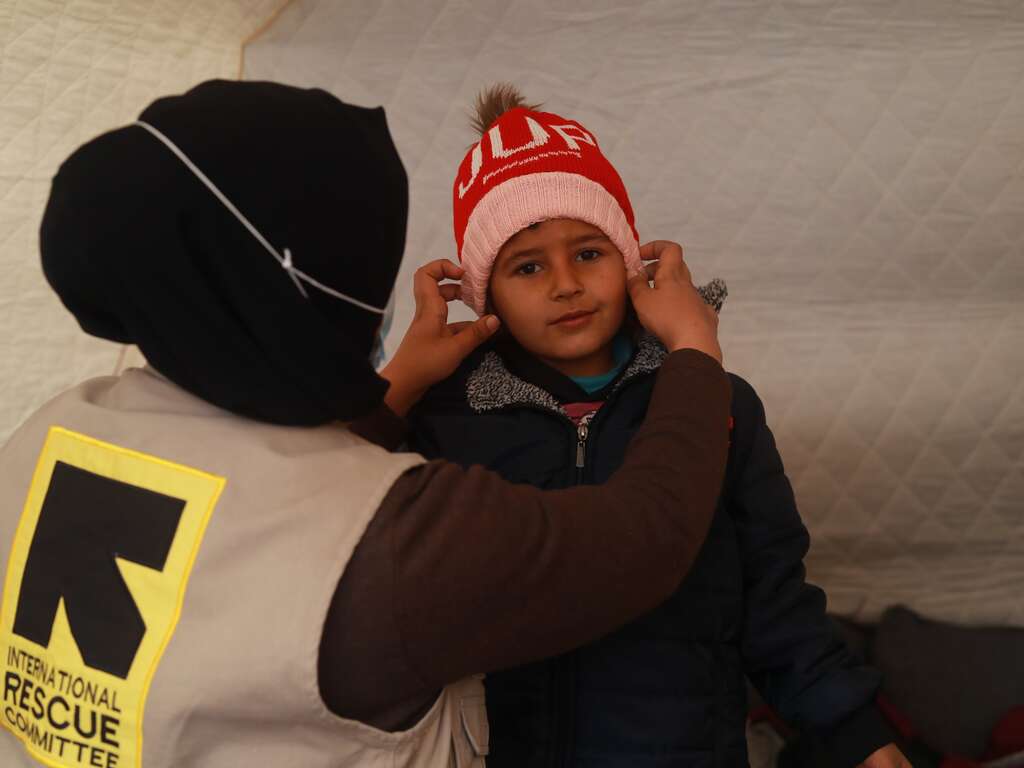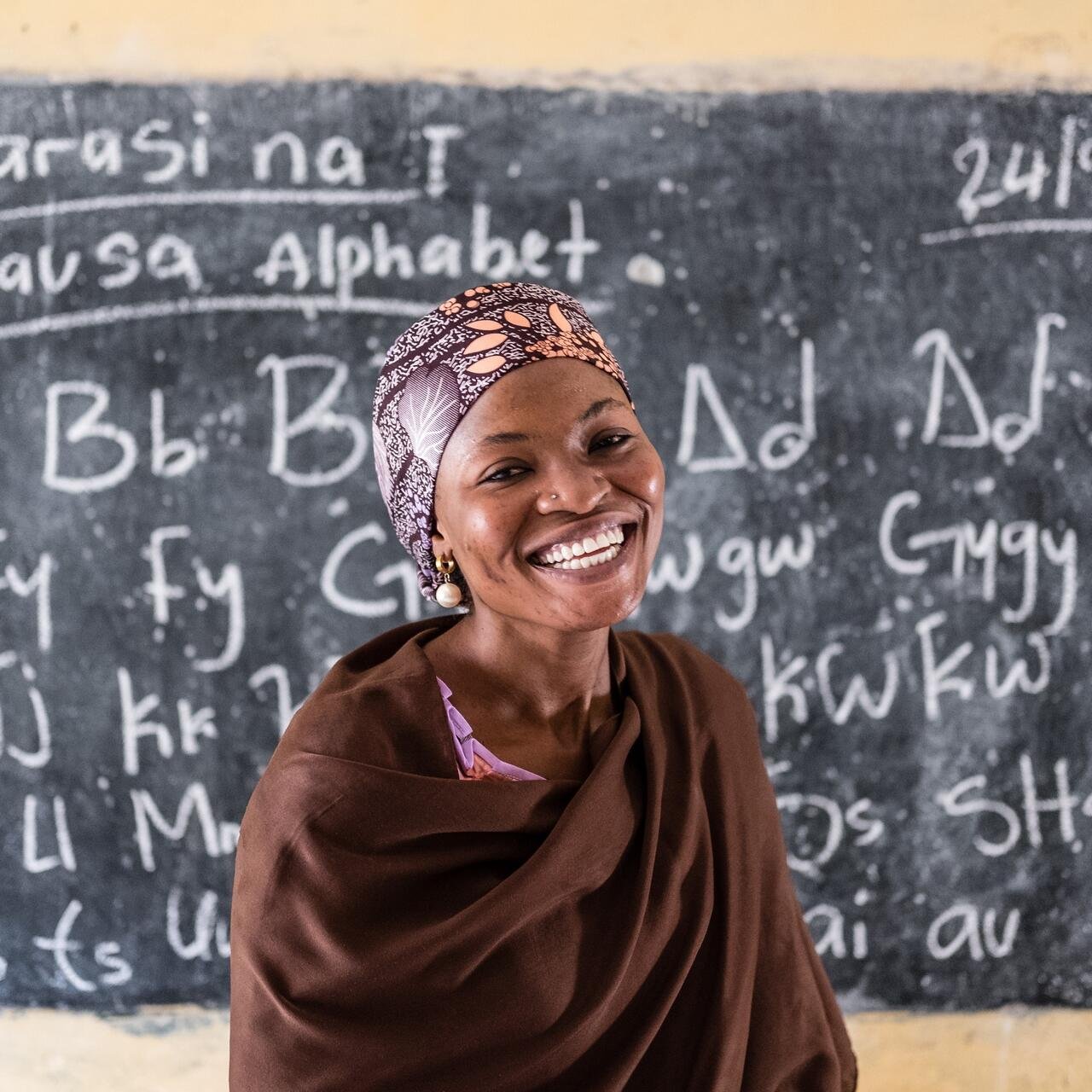
"I became a teacher, not just to develop myself, but because I wanted to help those in need—the poor ones, the little ones, the ones that don’t go to school," Fatima recalls. "My favourite moments are when I’m with the children. When I see my students happy, I feel so happy."
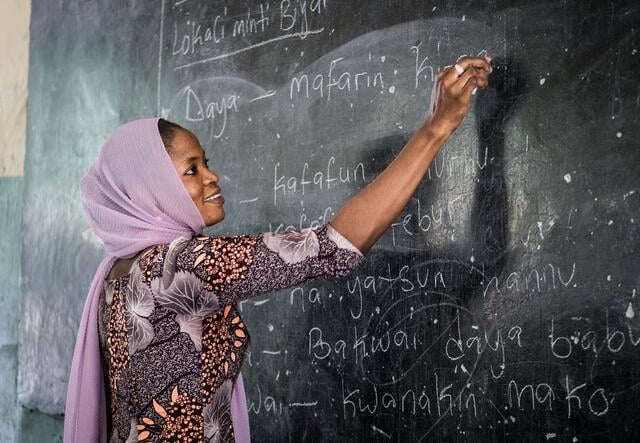
Seated on a green plastic chair in her classroom, Fatima glows as she recalls her lessons. Excited children in sky blue school uniforms peek through the doors and empty window frames of the classroom. She smiles at them nonchalantly.
Fatima is a teacher working for the International Rescue Committee in Maiduguri, northeast Nigeria. Her lessons cater to Maiduguri’s many out-of-school children, helping them to catch up with literacy and numeracy before eventually transitioning into mainstream education. But Fatima’s lessons aren’t just focused on reading and writing. She also teaches her students mindfulness techniques - or ‘deep breathing’ as she calls it - to help them cope with the impact of living through conflict.
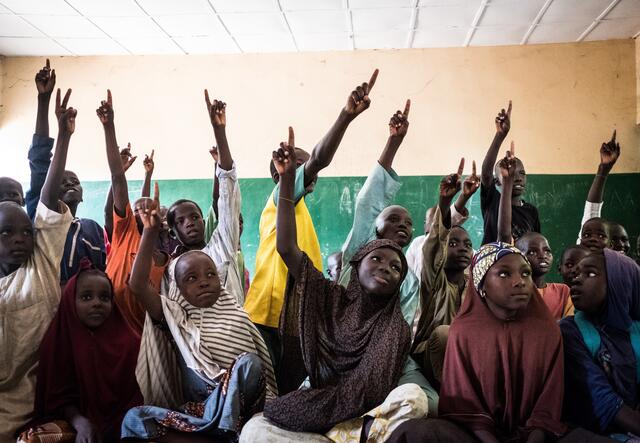
Ten years ago, the beginning of a violent insurgency turned the lives of people in northeast Nigeria upside down. Millions of families were forced to flee horrific attacks on their home communities, and two million people are still internally displaced. Hundreds of schools have been closed or destroyed altogether, and it’s estimated that 2 million children in the region are in need of education. With the support of UK Aid, the IRC and Fatima are giving children hope for the future through education.
Many children in northeast Nigeria are struggling to deal with their traumatic experiences and the daily hardships of displacement and poverty. “We don’t just teach maths and literacy—we clap, we laugh, we do deep breathing, and then we sit down for a lesson. This emotional support is really important for the students… and also for me,” Fatima says.
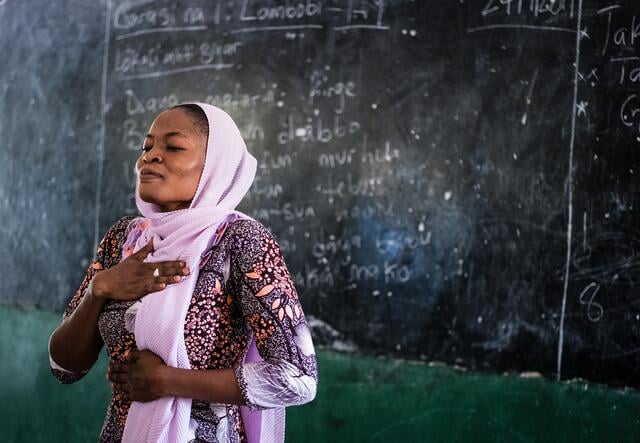
In fact, when she was training to become a teacher for the IRC, Fatima realised that she was living with her own share of trauma after witnessing a bomb blow up a school as a teenager. “That day is something I’ll never forget,” she recalls. “When the bomb went off at the school across the street from mine, I saw everything with my own two eyes.”
Unflinching, Fatima continues: “At that time we only knew bombs from TV. When I heard the boom I started running. I saw other people running too, and blood shedding everywhere. I cried so much.”
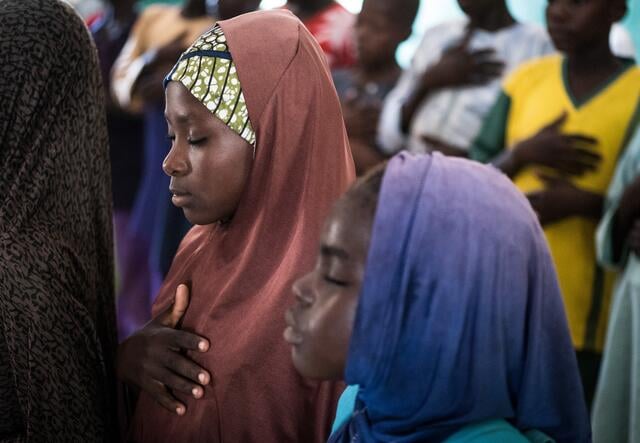
For the next six years, Fatima barely left her family home. Violent attacks were so frequent and severe that Maiduguri residents felt they risked their lives each time they walked the streets. Fatima’s experience haunted her. “Every time I sat down, I’d think of what I saw. I felt dizzy, I got so many headaches. The only thing that helped was taking medicine to help me go to sleep.”
“But with the help of my training, I learned that I had toxic stress,” Fatima continues, describing a type of mental health issue that if left unaddressed can lead to problems with brain development. “I needed to be around people, to listen to music, to do deep breathing. That’s how I manage my stress—I don’t need to take medicine anymore.”
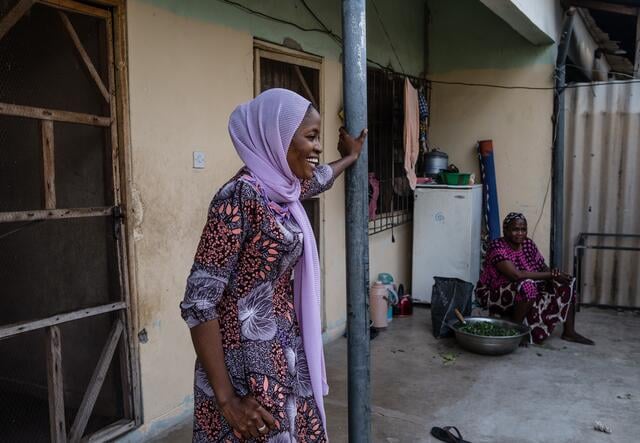
Fatima’s passion for her work shows, and the children are captivated by her. As they chant numbers from one to ten, their young faces light up with the joy she radiates. After the lesson, she asks her class to stand, placing one hand on her chest and another on her stomach. “Breathe in,” she tells them. “Now bring your breath down… Don’t you feel so relaxed?”
“The crisis has affected us very badly. For six years, I cried so much. If it wasn’t for this training I’d still be sat at home, taking medicines for toxic stress. But now I spend time doing what makes me happiest—being with my students, playing and teaching. Then I go home, play with my siblings and jest with my family. I’m so happy, and I’m proud to be a teacher. By God’s grace, things will get back to normal.”
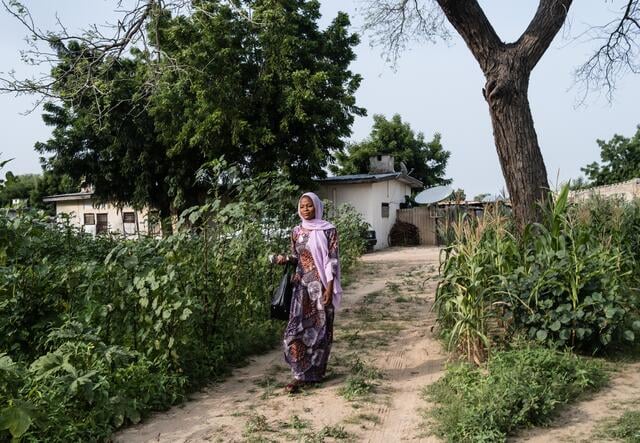
Find out more
In Nigeria, we’re training teachers like Fatima to give children the emotional support they need to rebuild their lives. Groundbreaking research shows this social-emotional learning work in northeast Nigeria is helping to reduce levels of aggression amongst children living through conflict. The IRC gives displaced children a sense of home when theirs has been taken away.
This IRC Education in Emergencies work in Nigeria is made possible by support from UK Aid.
